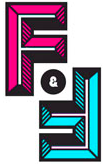The basic question is: what is a simple domain name?
The answer seems obvious. Besides, everyone has an opinion on the question: “a simple domain name is one that’s easy to remember” or “a simple domain name is short.” The problem is that when you’ve said that, you’ve said nothing at all.
Firstly, because some questions make it impossible to see the wood for the trees: what makes a domain name easy to remember? Can you clearly define why it is easy? Or base its memorization on objective criteria?
Secondly, because some explanations are far less obvious than it seems. For example, “khgfl.com” is a domain name that’s short, but does that make it simple? You can quickly see that a number of interacting variables are liable to influence the complexity of a domain name.
Finally, if you do not objectively measure and screen the results based on statistics, your decision is based more on belief than fact. Measurement is one of those precious things that separate science from speculation.
Afnic therefore decided to refer the matter to the Fast & Fresh agency to obtain objective results allowing young entrepreneurs to base their choice of domain name on effective criteria, and provide some useful tips for creating it.
Who carried out the study?
Olivier Mokaddem, founder of the Fast & Fresh agency, a User Research, Strategic Innovation and User Experience (UX) agency that works for major E-commerce, Luxury and Bank brands, but also with several Paris-based business incubators to help Innovative Start-ups take off.
To ensure reliable results and not approximations, Fast & Fresh worked with the Cognitive Psychologists team at the University Montpellier 3 (Epsylon Laboratory) to build the test protocol and carry out the statistical analysis of the data.
The test protocol
a) Theoretical foundation:
A domain name is a word, analyzing the complexity of a domain name therefore means analyzing the complexity of a word, a topic widely studied in Cognitive Psychology by researchers such as Ferrand.
The research highlights various factors that explain the complexity of a word. They include the following:
- The length of the word: “green” will be processed more quickly that “unconstitutionally” (although some models seem to include more nuanced options on this topic)
- Training: “green” is more frequently used and better known than “prophylaxis” and will therefore be processed faster
- Semantic value: “twiceascheap” makes sense in the context of e-commerce and will be processed faster and better memorized that “ataraxia” which has nothing to do with e-commerce, or “aneo” which makes no sense at all
- Visual degradation: “green” will be processed faster than grEeN
- Salience: “scrooge” may be better memorized than “design” because scrooge has stronger emotional valence
b) Test protocol
We therefore chose to make the experiment modest in order to obtain credible results. We varied 3 particularly relevant factors for a domain name:
- The length of the word: we presented users with short and long words (e.g. “green” vs. “technological“)
- The semantics of the word: we presented users with words (e.g. “blue“) vs regular non-words, i.e. nonsense words but which look like normal words (e.g. “baret“)
- Visual degradation: we presented domain names without hyphens (e.g. “red.”) vs domain names including hyphens (e.g. “duck-green“)
- We controlled for extraneous variables such as salience, emotional valence, training, presentation context, presentation media (mobile vs. tablet vs. computer), age, knowledge of the input devices, the model of the input device
- Our sample involved 36 users
- Our measurements focused on on-screen reading time and keyboard entry time. We also noted how users explained their entry strategies.
- Statistical test used: variance analysis
What significant results can you use when choosing your domain name?
- Result #1: short domain names are read and entered faster than long ones.
Tip: prefer short names
- Result #2: the shorter the domain name, the more it resists the input device. To put it clearly, a short domain name will be entered at the same speed whether on a smartphone, tablet or computer. This is not the case of long words that are harder to type on mobile devices or tablets (domain names are always easier to type on a computer keyboard).
Tip: prefer short words even more if your website is viewed on mobile
- Result #3: invented words (regular non-words) do not influence reading speed. They are read as fast as real words.
Tip: don’t be afraid about being creative with invented short domain names!
- Result #4: words containing hyphens are catastrophic in terms of keyboard input, especially on mobiles and tablets
Tip: Avoid hyphens in domain names, they lengthen reading and input speed.
- Result #5: while the use of hyphens can disrupt the input speed of a domain name, they may however enhance reading speed: our findings show that they are still very useful when the domain name consists of more than 2 key words: “the-blue-duck” is read faster than “theblueduck”
Tip: If your domain name is long, use a version with hyphens for your communication media but always have an equivalent without hyphens.
- Result #6: The longer the domain name, the less the TLD is entered. The switchover in behavior takes place at around 7-8 characters.
Tip: try to have a short domain name. If your domain name is long, remember to register it under several TLDs.
- Result #7: The longer the domain name, the greater the tendency to enter keywords into a search engine rather than type it in full.
Tip: make sure that the SEO of your website corresponds to the keywords used in your domain name: users may try to find you that way. Caution: some users retranslate your name, and enter 5 instead of five, or vegan when your name is veggie.
- Result #8: The .fr TLD serves as a noise filter. When the domain name is little known or there is international noise on your name, users add .fr to be sure they arrive directly on the official website in French without making mistakes and without losing time
Tip: use the .fr TLD as a language filter so that French users can easily find you.




